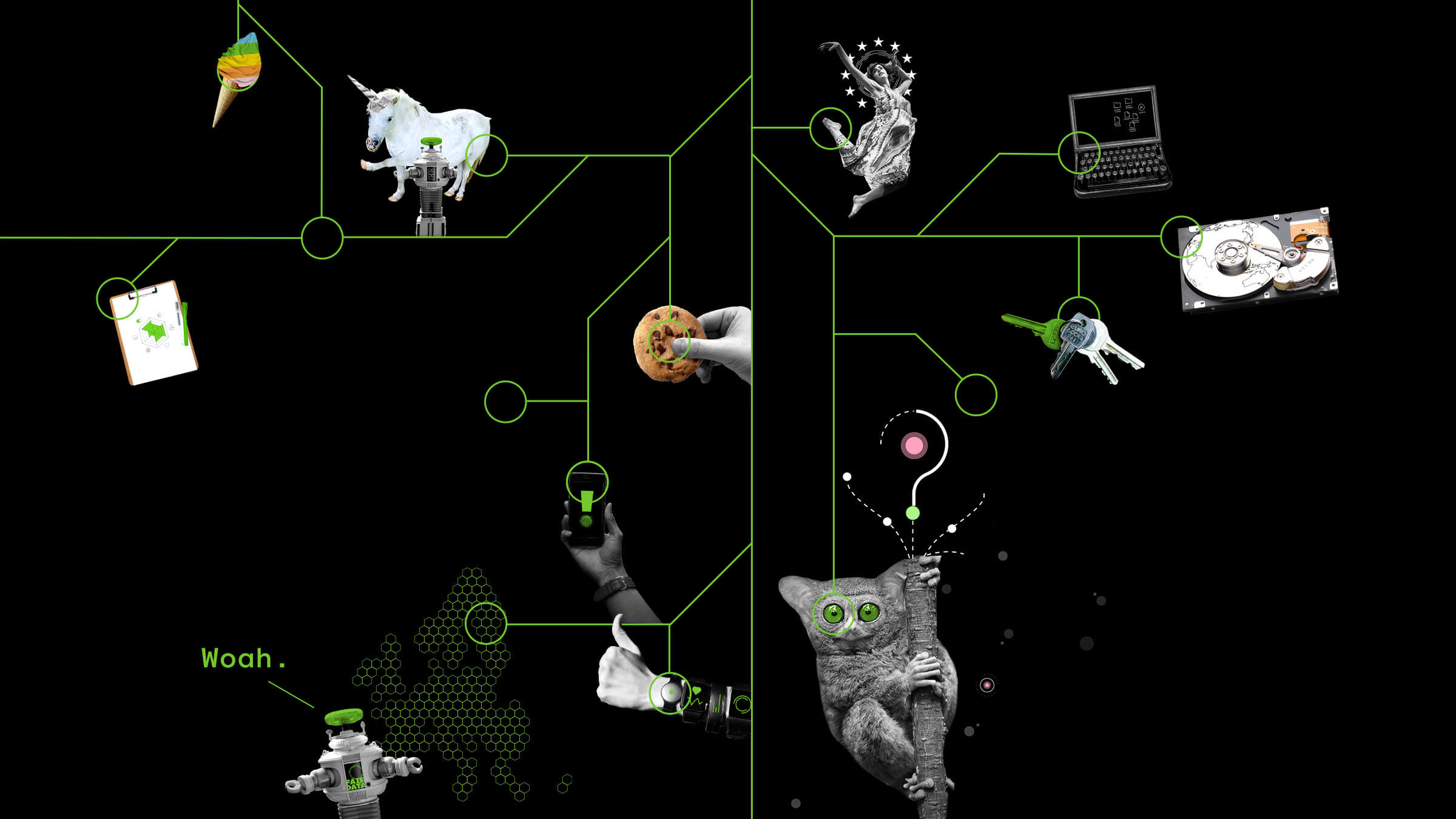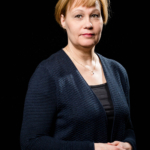What was this work about?
Sitra launched the IHAN® project in 2018 as a continuation of earlier projects that boosted human-driven online services and digitalisation. The objective of the project was to lay a foundation for a fair data economy. In a human-driven data economy, the starting point is that people must be able to trust the digital services they use and understand the terms and conditions under which individuals’ data is used. The use of data must be fair and transparent.
At the time the project started, attention was generally focused on artificial intelligence and its regulation. The concept of a data economy was relatively new and undefined. Sitra’s view was that the significance of the data economy would increase in the future, with data as a key raw material in the production of new services and products. As a result, it was considered necessary to have ethical and human-driven, jointly agreed rules for data use as well as a technical framework for the fair sharing of data.
Finland’s EU Presidency in 2019 brought data economy principles onto the European Union’s agenda. The European strategy for data published in 2020 and the subsequent legislative initiatives have also been important milestones in the development of a European data economy, also from the perspective of the human-driven approach.
How did the work proceed?
The project was divided into areas, where the aim was to influence different target groups – individuals, decision-makers and companies. As the data economy has a major impact on people’s everyday lives, it was considered important to emphasise the individual’s point of view from the outset.
The fair and responsible use and sharing of data under common rules strengthens companies’ competitive advantage but also requires extensive competence and understanding of both data-based business and operating in ecosystems. The project studied the obstacles associated with the data economy, on the basis of which tools were developed, development communities were established around the creation of sustainable data-driven business and investments were made in the development of competence and capabilities.
A fair digital transition is Europe’s most important facilitator of sustainable growth and competitiveness. Finland and the EU can act as data economy trailblazers, but without the understanding of decision-makers, legislation or research, development and innovation (RDI) activities do not support companies’ actions adequately. Co-operation with decision-makers and authorities, such as ministries and the European Commission, has been important in ensuring that due attention is paid to this new economic and political area.
Work has consisted of influencing mindsets and attitudes and carrying out practical pilot projects and experiments as well as building and operating in Finnish and international networks.
What was achieved?
The project built a new, European data economy model that combines a human-centric approach, trust, a sense of community and the principles of sustainable growth. The key results of the different areas are associated with technical experiments, the promotion of data-based business models, measures related to individuals’ digital everyday life and influencing decision-making.
Technical experiments
In the area that focused on technical questions, common rules and tools were created for more responsible and sustainable digital services. A key task was to create a blueprint document for the implementation and use of the IHAN operating model. The blueprint contained the general architecture principles that could be used in the provision of services that comply with the principles of a fair data economy.
The key tools created in the project are the IHAN Blueprint and the pre-standard (CEN – European Committee for Standardization – Workshop Agreement: Elements of fair and functioning data economy: identity, consent and logging).
On the basis of the blueprint work, technical pilot projects were carried out and a testbed was built to enable organisations to create fair data economy applications.
Key results of the area:
- Starting the standardisation process for fair data economy solutions with CEN Workshop Agreement
- IHAN-compliant technical blueprint
- Technical pilot projects based on the principles of the blueprint (15 projects)
- The fair data economy IHAN testbed is a tool for companies that use data in their business
Business models
As far as business models were concerned, the focus was on building common rules and tools for a more responsible and sustainable use of data. The key company tools created in the project include the Rulebook for a Fair Data Economy and the fair data economy maturity model. The maturity model and the criteria included in it help companies make the transition to sustainable data-driven business.
Companies were engaged in project activities in many ways. The IHAN business programme pilot project was a programme intended especially for SMEs, with the aim of helping them create new business with data and improve their preparedness to adapt to post-crisis times in co-operation with partners. The pilot programme includes an extensive set of training materials, which were published later. When the project ends, the Ministry of Economic Affairs and Employment will take over responsibility for the administration and further development of the business programme.
The workshop series Making data part of CSR defined sustainable data use from the perspective of CSR (corporate social responsibility), identified best practices and created recommendations for sustainable and responsible data use. The results of this work have been used in the creation of the maturity model. The topic will remain on the agenda of Sitra’s co-operation partner FIBS and it has also been one of the themes in a national CSR reporting contest, for example.
Key reports and publications of the area:
- Business surveys 2019 and 2021
- Rulebook for a Fair Data Economy for building ecosystems
Concepts and tools created in the area:
- Business programme concept and pilot project and training materials (in Finnish, updated 6 May 2022)
- Conceptualisation for data as part of CSR and recommendations for companies
- Fair data economy principles and maturity model
Individuals and digital everyday life
In this area, the aim was to study the level of individuals’ trust and their desires for digital everyday life. An online test was created to help users of digital services understand their own online behaviour and to provide support for managing it better.
Furthermore, a digital footprint survey was carried out to investigate the flow of data collected about an individual online, with the aid of voluntary test subjects. The survey investigated where the data about the test subjects went when they visited websites or used digital services as logged-in users. The aim was to visualise the extent of the use of the data collected about each and every one of us.
The area produced the following information and tools related to digital everyday life:
- The use of digital services survey 2019 and 2021
- On the trail of personal data survey
- Digiprofile test
Influencing decision-makers
This area produced numerous reports and studies on the data economy to support Finnish and EU-level decision-making. In addition, opinions and statements were prepared for Finnish and EU-level strategies and legislative and other initiatives.
Key stakeholder forums where data economy was promoted included Smart Policies for Data, which was targeted at international decision-makers and concentrated on regulation and legislative questions, and the national Datatalouden tilannehuone (Data economy situation room), which focused on practical data economy questions and actions.
Key statements to decision-makers made by the area:
- A Roadmap for a Fair Data Economy
- 35 proposals to make the European data strategy work
- Data-based solutions in healthcare (Towards trustworthy health data ecosystems publication)
EU-level projects
While the project is coming to an end, Sitra will continue to co-ordinate EU-level projects. One of them, the TEHDAS Joint Action (Joint Action Towards the European Health Data Space), launched in spring 2021, aims to create joint European principles and a governance model for the secondary use of health data. The results of the project will form the basis of the European Commission’s legislative proposals and enable member states to harmonise their national legislation and identify solutions together, among other things.
Another joint European project, Gaia-X, aims to create standards, ground rules and an infrastructure based on European values for a data ecosystem that openly shares data. After the preparation phase Sitra unveiled its plans for national co-ordination in spring 2021 and will be responsible for co-ordinating Finland’s Hub until 2024.
Who was involved?
The main national co-operation partners of the Fair data economy project were the Ministry of Economic Affairs and Employment, the Ministry of Transport and Communications, MyData Global and FIBS. In academic co-operation, key partners included the University of Turku, ETLA Economic Research and Aalto University.
Key international co-operation partners were the Lisbon Council, aNewGovernance and the Data Sovereignty Now coalition. Sitra has also co-operated closely with the representatives of the European Commission and the European Parliament.
The IHAN testbed was built in co-operation with Digital Living, Nixu, HiQ and Vastuu Group. In the rulebook work, the key partner was 1001 Lakes. In addition, numerous other individual companies participated in workshops and programmes and helped in steering the project’s direction and developing the tools.
What will be the significance of this work in future?
Finland has been a pioneer of a human-driven and fair data economy. The practical implementation of the new tools and development of the operating methods to support a fair data economy require a lot of work. This work will be continued at Sitra under the Fair data economy theme launched in spring 2021.
Sitra’s work has paved the way for a fairer use of data and the identification of new opportunities. In the three years since the beginning of the project, the data economy has been an integral part of the EU’s agenda and the EU’s Digital Decade goals emphasise the human-driven approach. With the aid of the networks built, the work will continue and expand further in the near future. Finland can continue to set an example of how to create new kinds of data ecosystems and demonstrate the benefits they yield, and by doing so can maintain an influence on developing the European data economy into a more pluralistic data economy.
Updated link to the training material on 6 May 2022.




















Read more